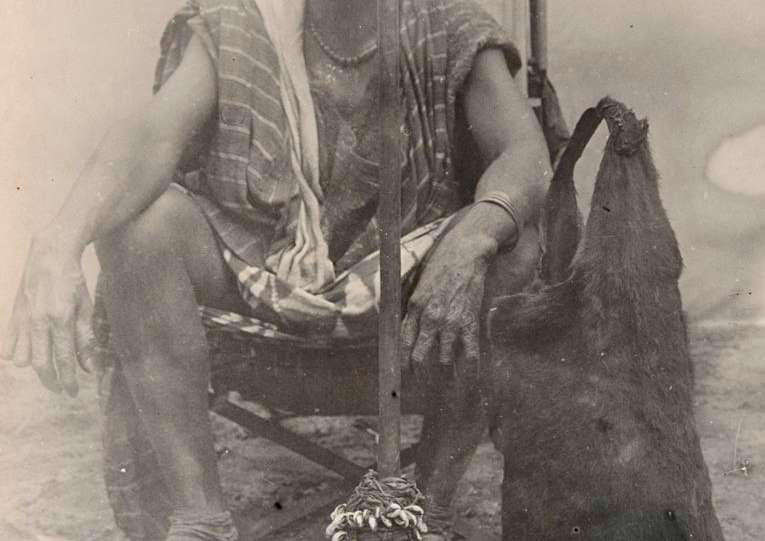
The Igbo say, “Nwata bulie aka gbagbuo ozu, o mara na ọ bụ ihe dị ndụ o buliri” (when a child lifts what he believes to be a corpse and it moves, he learns it was alive all along). That is how Nnedi Okorafor’s journey began with a love that seemed lifeless to others: comics.
As a young girl growing up in the Chicago suburbs to Nigerian Igbo parents, Nnedi discovered the world of Garfield before she ever met Superman. Her father, a devoted newspaper reader, left the Chicago Sun-Times on the table each morning. Between headlines and horoscopes, she found the comics page, filled with bright panels and dark ink lines that danced across paper.
Even before she wrote prose, she was mesmerized by the visual rhythm of stories, how words and drawings merged to create life. “It wasn’t just humor,” she recalled, “it was the movement of language through images.” But the world of comic books, stores filled with white boys and heroes who never looked like her, felt like a door half open. When she entered, she was stared at, not as a reader but as an intruder.
The Silence Between Panels
In Igbo storytelling, silence is sacred. “Uche bụ isi,” they say, thought is the head of action. For years, Nnedi’s imagination grew in quiet rebellion. She was a child of two worlds: Nigeria in her blood, America in her bones. By nineteen, she was a national tennis champion and track star. Her body was strong, her spirit unbreakable, until one day, it broke.
A spinal surgery meant to correct her scoliosis went wrong, leaving her paralyzed from the waist down. In nine hours, she went from athlete to patient. “I had lost my superpowers,” she would later write. But in that stillness, in the silence between movement and memory, stories began to speak again.

Photo Credit: Wikimedia Commons – Nnedi Okorafor speaking at a reading (Photographer: Unknown, CC BY-SA 4.0).
When the Body Fails, the Imagination Rises
During recovery, Nnedi spent months in a hospital bed, staring at the ceiling and watching television. That’s where she met the X-Men. Storm; the African goddess who controlled the weather and Wolverine, whose rage and resilience mirrored her own, became her first superheroes. Through them, she began to understand that superpowers aren’t only in the body; they live in survival.
In time, she walked again slowly, painfully, triumphantly. And when she did, she carried a new identity: storyteller. Her early novels; Zahrah the Windseeker and Who Fears Death, blended African myth and modern science. They weren’t fantasies about faraway kingdoms, but reimaginings of Africa itself. She called her world African futurism, rooted in her Igbo consciousness, not as an outsider looking in, but as one returning home.
“Igbo Enwe Eze”: The Girl Who Questioned Kings
Years later, when Marvel invited her to write Black Panther: Long Live the King (2017–2018), Nnedi hesitated. She was Igbo, after all and as her people say, “Igbo enwe eze” (the Igbo have no king). How could she write about T’Challa, the monarch of Wakanda, when her culture prided itself on egalitarianism and collective leadership?
But then she realized something profound: her task was not to worship the king, but to humanize him. She entered Wakanda not as a tourist, but as a diplomat, questioning hierarchy, expanding the people’s voice, and reconnecting the mythic African nation to the real ones that inspired it. In her hands, the Black Panther became more than a superhero; he became a mirror through which Africans and the diaspora could imagine home again.
Of Cats, Kings, and Cosmic Futures
“The happiness of Africa,” wrote Nigerian author Ben Okri, “is in its nostalgia for the future.” Nnedi Okorafor embodies that nostalgia, a longing for futures that remember the past. Her storytelling stitches together Igbo cosmology, postcolonial memory, and feminist defiance. She writes of spirits that live in computers, girls who grow wings, and lands that are as old as the ancestors but as new as tomorrow’s dream.
In the same way that the ikoro drum once called villages to gather, her words call readers of African descent to remember not only who they were, but who they can still become. To Nnedi, comics are not escapism; they are reclamation. Every frame is an act of cultural resistance. Every page says: We were here. We still are.
Legacy and Reflection
The Igbo say, “Mmiri mara ihe na-agba, ọ na-agba n’ụsọ” (when water knows where it flows, it flows with purpose). Today, Nnedi Okorafor stands as one of the most important African voices in speculative fiction. Her work bridges Nsukka and New York, mythology and technology, faith and future.

Marvel Comics. Artwork from Black Panther: Long Live the King (written by Nnedi Okorafor, illustrated by André Lima Araújo). Used here under fair use for educational and commentary purposes.
From Who Fears Death (soon to be adapted by HBO) to her work on Black Panther and Shuri, she has made the extraordinary feel intimate, as if every African girl with a scar, every boy with a story, holds the power of gods. Her journey from paralysis to purpose is not just about survival, it’s about creation. She teaches that the true strength of the Igbo spirit lies in adaptability, imagination, and self-definition.
In her own words, “Comics are powerful indeed… I look forward to what comes next.” And so do we. Because through her pen, the future speaks Igbo.
References:
- Okorafor, N. (2019). Broken Places & Outer Spaces: Finding Creativity in the Unexpected. TED Books.
- Okorafor, N. (2018). Black Panther: Long Live the King. Marvel Comics.
- Okri, B. (1996). Birds of Heaven: Essays. Phoenix House.
- Falola, T., & Njoku, R. C. (Eds.). (2016). Igbo in the Atlantic World: African Origins and Diasporic Destinations. Indiana University Press.


